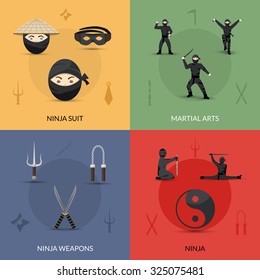The Background And Ideology Of Martial Arts: A Deep Dive
The Background And Ideology Of Martial Arts: A Deep Dive
Blog Article
Web Content Writer-Ryberg Friedman
Enter the old world where martial arts were substantiated of necessity in varied regions. Societies crafted unique fighting designs linked with historical contexts. https://coachingkidsmartialarts10986.getblogs.net/63676769/young-people-martial-arts-enhancing-confidence-and-personality-development-from-an-onset progressed over centuries via dedicated method and social exchanges. Today, contemporary martial arts blend traditional aspects for maximum performance. Philosophically, martial arts highlight discipline, self-improvement, and consistency. Regard, humbleness, and balance are foundational principles leading practitioners in the direction of development and strength. Discover the midsts of this abundant history and philosophy to discover the extensive impacts shaping this enduring discipline.
Beginnings of Martial Arts
Fighting style originated in numerous areas around the globe, advancing as functional fight systems to defend against hazards. These old battling styles were created out of requirement, with each society crafting techniques fit to their unique settings and challenges. From the grappling arts of Jujutsu in Japan to the striking methods of Kung Fu in China, martial arts were deeply intertwined with the historic, social, and cultural fabric of their particular societies.
In Japan, the samurai class polished martial arts like Kenjutsu, the art of the sword, which later on developed right into the much more popularized kind of Kendo. At the same time, in Brazil, Capoeira emerged as a mix of dance and combat, developed by enslaved Africans as a way to resist fascism. Each martial art lugs with it a rich background and viewpoint, showing the values and ideas of the people who exercised them.
As you explore the beginnings of martial arts, you reveal a tapestry of human resourcefulness, resilience, and the unrelenting spirit of warriors throughout time.
Evolution of Methods
With centuries of technique and improvement, fight methods within various martial arts have actually gone through an extensive development. From old designs like Martial art and Karate to more modern-day self-controls such as Brazilian Jiu-Jitsu and Krav Maga, the development of strategies has been driven by a combination of social impacts, useful applications, and technological advancements.
One significant facet of this evolution is the cross-pollination of methods in between different martial arts. As read the article , strategies from typical Japanese Jiu-Jitsu were included into the production of Judo by Jigoro Kano in the late 19th century. This blending of styles has actually brought about the development of crossbreed martial arts like Mixed Martial Arts (MMA), which integrate elements of striking, grappling, and submission methods.
Moreover, the development of techniques has been formed by the boosting emphasis on performance and performance in battle. Specialists have actually continuously looked for to refine their techniques through rigorous training, testing, and competition, resulting in the advancement of highly specialized and effective fighting styles. Generally, the development of techniques in martial arts mirrors the dynamic nature of battle and the continuous quest for enhancement and technology.
Philosophical Foundations
Checking out the underlying thoughtful concepts of martial arts gives insight right into their core worths and directing ideas. At the heart of many martial arts techniques is the idea of discipline itself. By educating your mind and body to work as one natural device, you cultivate discipline that expands beyond the dojo or gym into everyday life. This self-control encompasses respect, humbleness, and self-control, forming not simply your physical capabilities yet also your character.
Another essential philosophical structure in martial arts is the concept of continual self-improvement. The trip of mastering a martial art is perpetual, with practitioners constantly making every effort to better themselves, both literally and psychologically. This focus on development promotes strength, willpower, and a development attitude that can be applied to all facets of life.
Additionally, martial arts stress the importance of consistency and balance. Methods are designed to make use of an opponent's energy versus them, highlighting the concept of producing and redirecting pressure as opposed to meeting it head-on. This viewpoint reaches interpersonal connections, advertising calm resolutions and good understanding. By embracing these thoughtful structures, martial musicians not only boost their fight abilities but additionally grow a way of living centered on individual growth, respect, and consistency.
Final thought
Finally, the history and philosophy of martial arts supply an abundant tapestry of custom, technique, and self-improvement.
Consider example the tale of Bruce Lee, that changed martial arts by blending different designs and approaches to produce his very own special type of Jeet Kune Do.
With devotion and innovation, martial artists continue to press limits and influence others to reach their complete potential both in combat and in life.
